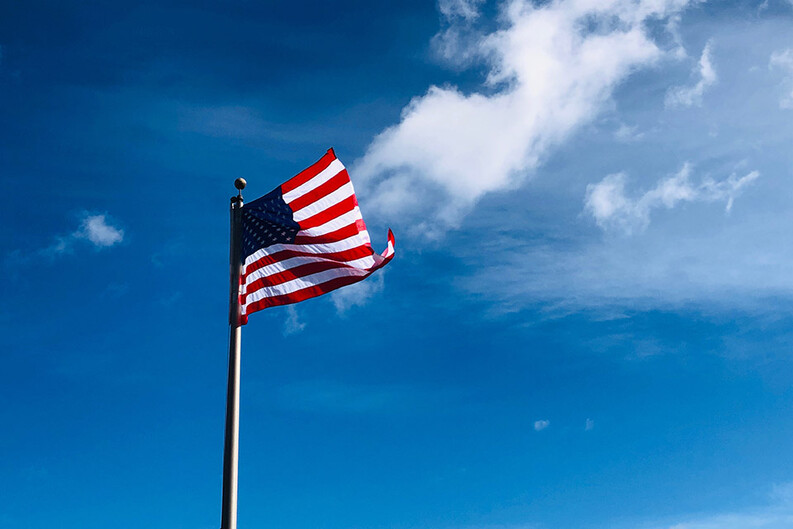Veterans Clinic Suing VA for Racial Disparity Data and Records

The Veterans Legal Services Clinic4 at Yale Law School has filed a lawsuit on behalf of two veterans organizations to force the Department of Veterans Affairs to produce information the two groups requested on racial disparities in the agency’s benefits and services.
Black Veterans Project (BVP) and the National Veterans Council for Legal Redress (NVCLR) are suing the VA over its failure to be fully forthcoming in producing the requested data and records as required by the Freedom of Information Act (FOIA). The two organizations filed FOIA requests with three VA units early this spring to obtain records on disability compensation benefits and healthcare services the agency provided, broken down by race and gender. The lawsuit was filed on July 8.
“Following a widely known history of long-standing benefit obstruction and anti-Black racism and discrimination by the Department of Veterans Affairs, Black Veterans Project seeks to compel transparency and accountability,” said Richard Brookshire, Co-Founder and Executive Director of the organization. “Generations of Black veterans have been denied benefits owed to them and their families for their service and sacrifice to our nation. Acquiring this data is but a starting point for a public reckoning around racial inequity and the injustices faced by Black veterans across the United States.”
Black Veterans Project and the National Veterans Council for Legal Redress also sought records pertaining to internal reviews or studies of racial bias, discrimination complaints, and anti-discrimination policies and training for VA employees. Although the agency has provided some records, the complaint challenges the insufficiencies of the VA’s response. This includes the VA's failure to conduct adequate searches for records and failure to respond to certain requests entirely. Preliminary analysis of the 2018 data the VA has turned over thus far reveals that the agency grants disability benefits claims at a significantly lower rate for Black veterans than for veterans overall, according to the organizations.
“VA’s delayed and incomplete responses to our clients’ requests frustrate the purpose of the Freedom of Information Act, which is to ensure that the public can know what our government is up to,” said Melanie McGruder, an Oklahoma College of Law student and intern at the Veterans Legal Services Clinic. “The Board of Veterans Appeals, for instance, one of the three VA units from which the Black Veterans Project and the National Veterans Council for Legal Redress sought records, has completely ignored the request, in plain violation of the Freedom of Information Act. What is the Board trying to hide?”
Student interns on the case include McGruder, Ryan Liu ’22 and Lulu Zhang ’23 of Yale Law School and Matthew Handley of Seton Hall Law School. The team is directed by Michael J. Wishnie5, the William O. Douglas Clinical Professor of Law, and Meghan Brooks, a Robert M. Cover Fellow.
“Black Americans have fought and sacrificed for America’s freedom since this nation’s founding,” said Garry Monk, Executive Director of National Veterans Council for Legal Redress. “Yet, Black veterans have long faced racial discrimination from the VA, the very agency that is tasked with serving them.”
“We must have a complete and honest accounting of the discrimination that has taken place so that it can be fully addressed, now and moving forward,” said Conley Monk, National Veterans Council for Legal Redress Director.
Black Veterans Project (BVP) advances research and public education to address long-standing racial inequities across the military and veteran landscape. BVP is a subsidiary of the Black Veterans Empowerment Council (BVEC) — a coalition of national, state and local veteran organizations seeking to shift long-standing racial, economic and social inequalities suffered by Black veterans in the United States.
The National Veterans Council for Legal Redress (NVCLR) is a Connecticut-based veterans service organization that engages in advocacy and public education to promote the respect and acceptance of all who served our country, and works to secure benefits for those veterans and their families.
Established in 2010, the Veterans Legal Services Clinic at Yale Law School is part of the Jerome N. Frank Legal Services Organization at Yale Law School. Students and faculty represent veterans in litigation before administrative agencies and courts, on benefits, discharge upgrade, and other civil rights matters. In addition, students represent local and national organizations in state and federal policy advocacy relating to the legal needs of veterans.


